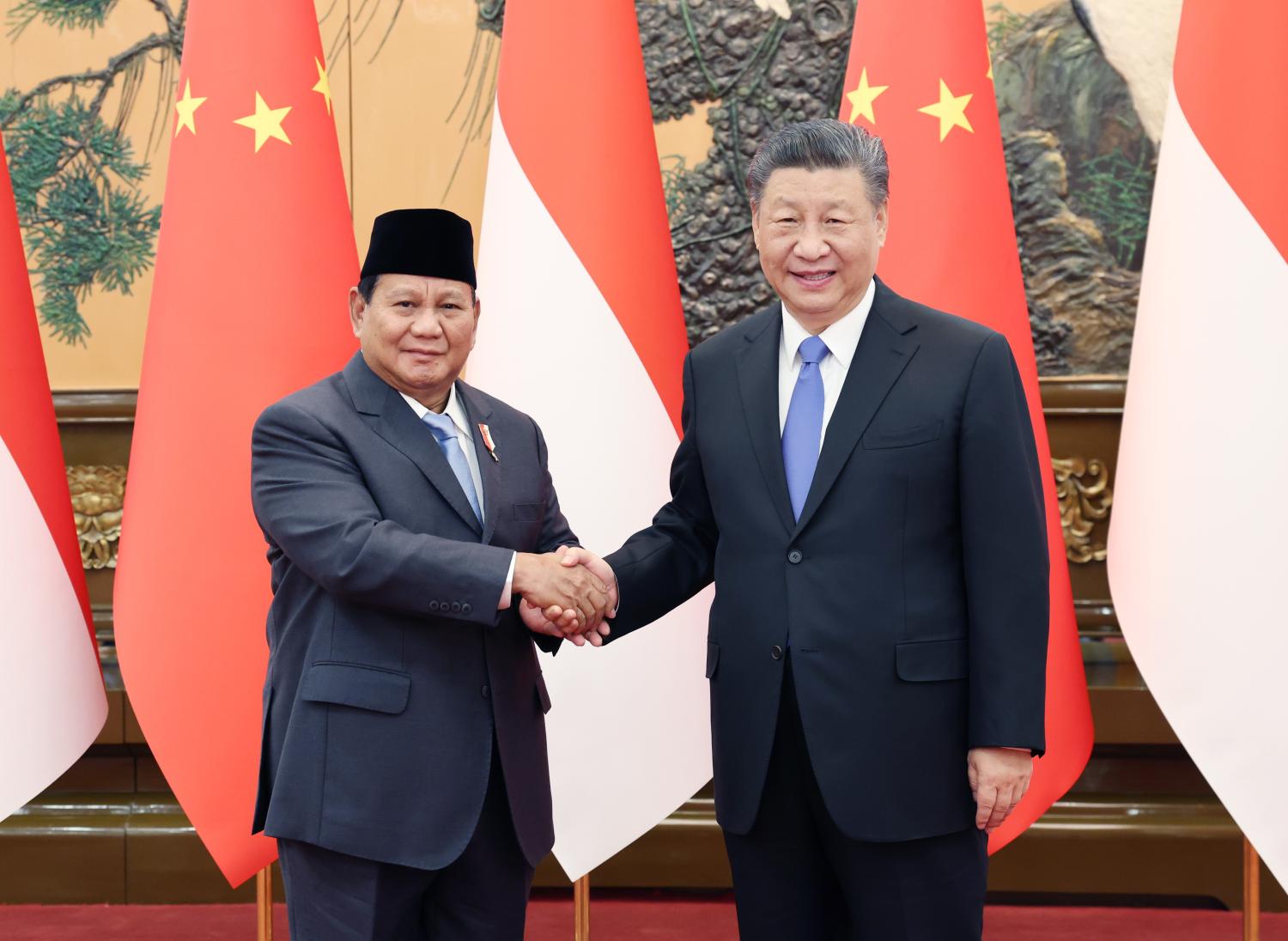President-elect Prabowo Subianto of Indonesia visited China, Japan and Malaysia last week, heralding his intent to foster foreign relations earnestly after he becomes president in October.
As President Joko “Jokowi” Widodo’s defence minister, Prabowo has frequently travelled abroad. With schooling in Kuala Lumpur, Zurich and London, and military training in the United States, Prabowo is adept at international engagement.
It showed in Prabowo’s 1 April meeting with Chinese President Xi Jinping. Xi apparently wanted to sound out how far Prabowo would go to maintain Jokowi’s policies, given the rapport Xi has with Jokowi. In his ten years as president, Jokowi has visited China at least six times.
Prabowo assured Xi of continuity. Prabowo "fully supports the development of closer Indonesia-China relations and wishes to continue President Joko's policy of friendship with China," China's CCTV quoted Prabowo as saying.
Xi described Prabowo as an "old friend of the Chinese people" and said China views its relations with Indonesia from a strategic and long-term perspective. Xi cited the China-built high-speed train link between Jakarta and Bandung, opened last October, as an exemplar of a “gold standard of high quality cooperation”. Bandung is the capital of West Java province, 142 kilometres by rail southeast of Jakarta.
Jokowi constantly seeks more Chinese investment. In April 2023, Luhut Binsar Pandjaitan, Indonesia’s coordinating minister for maritime affairs and investment and Jokowi’s troubleshooter in drawing in big-time investments, visited China's premier industrial estates to observe robotically operated plants. “They want to share their technology and are quick in their decision-making process,” Luhut told a local podcast interview in July last year. “We should befriend them so long as they do not manipulate us,” Luhut, a no-nonsense former Army general, concluded.
Economic cooperation is robust. Direct foreign investment from China in 2023 amounted to US$7.4 billion. Bilateral trade in 2023 totalled US$127.8 billion. But this collaboration occurs in an environment of poor safety and labour rights. In the early morning of 24 December 2023, an explosion occurred at a China-financed smelter in Morowali, Sulawesi island, killing 19.
Prabowo also met with Premier Li Qiang and Defence Minister Dong Jun. Prabowo brought a host of two- and three-star military officers with him. The delegation was no doubt keen to learn of China’s military modernisation and its plans for 2027, which marks the centennial of the People’s Liberation Army. Some US observers believe it is also the year when China will be capable of militarily taking over Taiwan.
The outcomes of Prabowo's talks with his Chinese counterparts on the South China Sea are unclear.
President Xi said “The key to the valuable achievements of China-Indonesia relations lies in adherence to strategic autonomy, mutual trust and mutual assistance”. Regarding the South China Sea, “adherence to strategic autonomy” can be taken to refer to Xi’s insistence that Beijing’s nine-dash-line claim, which overlaps with Indonesia’s exclusive economic zone, must be accepted. Jakarta’s long-standing position is that its UN-sanctioned economic zone is non-negotiable.
Because he fears upsetting economic relations, Jokowi has not been forceful in calling out Chinese fishing boats, protected by large Chinese Coast Guard vessels, in Indonesian waters. Prabowo will have to review this concerning situation, mindful of China’s growing military capacity.
Prabowo has reportedly pledged to scale up Indonesia’s defence budget from 0.8 per cent of GDP to 1.5 to 2 per cent. But he will also have to ensure relations with China remain civil.
The bottom line of the China visit is a win for both Prabowo and Xi.
Xi got the word that Prabowo will continue Jokowi’s work and policy thinking. Xi could also be assured that Indonesia would not take sides in any major-power conflict. Prabowo has been emphatic that Indonesia will maintain its non-aligned foreign policy. Prabowo got to confer with a major world leader and is recognised as the presumptive head of a regional power.
After Beijing, Prabowo flew to Tokyo and Kuala Lumpur for courtesy calls with Prime Minister Fumio Kishida and Prime Minister Anwar Ibrahim. Meeting three Asian leaders in a whirlwind four days appears to anoint Prabowo with international legitimacy as Indonesia’s president-to-be. But that legitimacy, or the lack of it, will be tested on 22 April when Indonesia’s Constitutional Court hears a case brought by Prabowo's two losing election opponents alleging large-scale election fraud.

